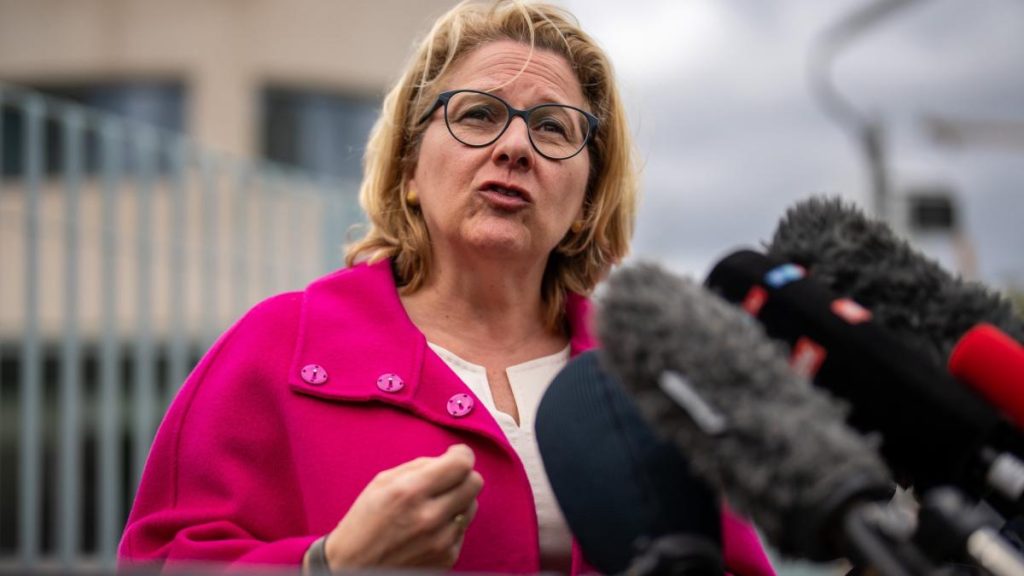German Development Minister Svenja Schulze (SPD) is pushing back against looming further cuts in the development budget. Instead, according to “Stern” magazine, she is calling for additional funds. Schulze stated, “I want to make it clear: even the existing budget is not adequate.” She pointed out that there were already significant cuts in the development aid budget last year. “We managed that, but it cannot continue like this, because the world situation requires more money, not less,” emphasized the SPD politician. She expressed understanding for the need to save money in the federal budget. However, Finance Minister Christian Lindner (FDP) must consider “Germany’s interests in the budget planning – not just in the short term, but also in the long term.” It will end up being “much more expensive in the long run if we cut back on development cooperation now.”
Schulze described a possible way out by saying, “Actually, we should have to loosen the debt brake.” She argued that the FDP’s rejection of this approach is not sensible in the long term. “Of course, we want to leave future generations with solid finances,” said the minister. “But we should also leave them with functioning infrastructure, intact climate, and reliable partnerships in the world.” This is not possible “if we cut everything short-term and small now.”
The issue of development aid is becoming increasingly important, as Schulze highlighted that the world situation requires more funding in this area. The SPD politician emphasized that it is not sufficient to simply maintain the existing budget for development assistance. She pointed out the negative impact of past reductions and stressed the necessity of increasing funding to meet the current challenges at the global level. Schulze urged Finance Minister Lindner to consider Germany’s long-term interests and avoid short-sighted budget decisions that could prove costlier in the future.
In light of the ongoing debate around budget cuts and financial prudence, Schulze highlighted the importance of balancing economic stability with investments in critical areas such as development cooperation. She warned against jeopardizing essential aspects of society, such as infrastructure, environment, and international partnerships, through excessive budget reductions. Schulze emphasized the need for a comprehensive approach that takes into account both short-term financial constraints and long-term sustainability goals. By advocating for additional funding for development aid, the minister underlined the importance of prioritizing global cooperation and solidarity in addressing pressing challenges.
Schulze’s stance reflects a broader discussion within the German government about the allocation of resources and the balancing of competing budgetary priorities. The minister’s call for additional funds for development aid underscores the significance of international cooperation and assistance in addressing global issues. As the debate continues, it remains to be seen how Finance Minister Lindner and other policymakers will respond to Schulze’s plea for increased support for development cooperation. The outcome of this budget negotiation process will have far-reaching implications for Germany’s role in international development efforts and its commitment to global solidarity.















